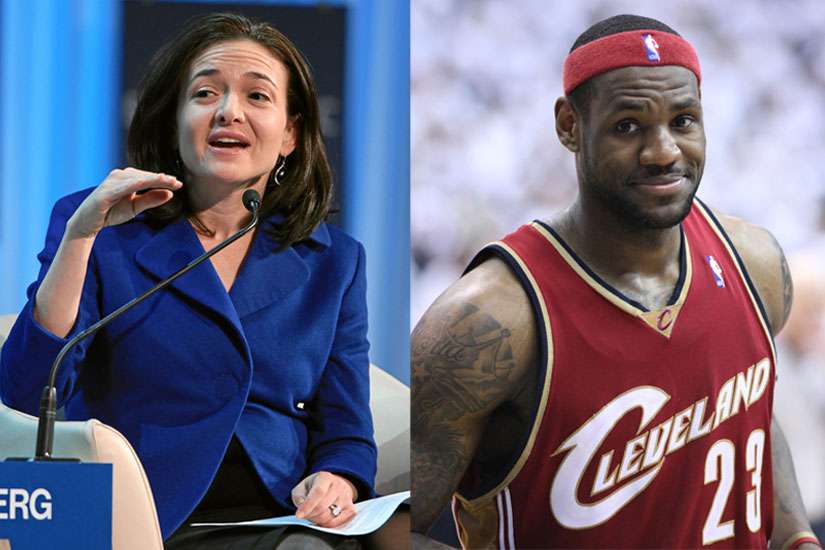It’s been two years since the release of her book Lean In in which Sandberg — whose day job is chief operations officer of Facebook — urges women to seize opportunities, not only at work, but at home, too, by demanding husbands support wives better and share more of the household duties and parenting. The book set off many a discussion about gender equality — not only across airwaves and social media, but across kitchen tables.
Now, James — in TV commercials, interviews and tweets to his 19 million Twitter followers — takes the court, urging men to lean in and join the gender discussion and do more to transform society into one of true gender equality.
Which brings us to an ongoing debate I have with a good friend, a male with a high-powered job on Bay Street. He argues in North America we have attained gender equality, especially in business, and he always wants the best person to get the job, not use quotas to promote women.
In other parts of the world, he argues, where girls are denied education and must suffer through various indignities and abuse, gender equality is a real issue. But here in North America, he says, it is more a politically correct issue.
I disagree. One need only look around Canada, all of Western society for that matter, to see many organizations and institutions that do not treat women equally. Take pay at work, as an example. In Canada’s private sector, for every dollar earned by a university-educated man, a university-educated woman earns 73 cents. The public sector is a little better at 82 cents, but certainly not equal. These numbers come from the Canadian Centre for Policy Alternatives (CCPA), but I’ve read similar numbers from Parliamentary committee reports and Statistics Canada.
Or look at MBA (Masters of Business Administration) graduates. Upon graduation, in their first jobs, Canadian women with MBAs earn $8,167 less than their male colleagues. That’s not equality.
When we move into business leadership, the inequality is even starker. Of the 100 biggest public companies in Canada, a paltry 8.5 per cent of the top jobs are held by women, with only eight female Chief Executive Officers, according to the 10th annual Rosenzweig Report of Women at Top Levels of Corporate Canada. (Full disclosure: I help Rosenzweig write the report each year, but I am not involved in the research of numbers.)
When the first Rosenzweig Report came out 10 years ago, women held only 4.6 per cent of the top jobs so things are moving in the right direction, albeit slowly. Even though women are almost half the full-time work force now, I’m not suggesting the correct number is 50 per cent, but surely 8.5 per cent is far too low.
By the way, women represent 26 per cent of elected municipal politicians across Canada, according to the Federation of Canadian Municipalities. So, in cities across Canada there are three times more women leaders than in the biggest companies. That’s quite a discrepancy and rather embarrassing for corporate Canada.
There is also inequality socially, much of it brought on by economic gender inequality. Far more women live below the poverty line than men and since most mothers look after their children, the economic impact hits them, too.
The CCPA published a report in 2014 called “Where is the Best and Worst Place to be a Woman in Canada?” The study ranks Canada’s 20 largest metropolitan areas based on a comparison of how men and women are faring in five areas: economic security, leadership, health, personal security and education. The crux of the study is that Canada guarantees equal access to education and health care but that hasn’t trickled down and translated into security at home or promotion at work for women. One might challenge CCPA for tilting research too leftward (I even wondered why they lumped my city, Mississauga, Canada’s sixth largest city, into Toronto instead of including it on the list), but these studies are important to continue the gender equality debate and fuel search for solutions.
Of course, high-profile celebrities like LeBron James speaking out is probably even more important towards creating a world where we don’t distinguish between man and woman as job candidates or leaders of companies or countries. We simply talk about who can do the job, whatever it may be.
By the way, the report says the best place to live for Canadian women is Quebec City and the worst is Edmonton. Toronto placed sixth. The full report can be found at: policyalternatives.ca/best-worst.
(Brehl is a writer in Port Credit, Ont., and can be reached at bob@abc2.ca or @bbrehl on Twitter.)


